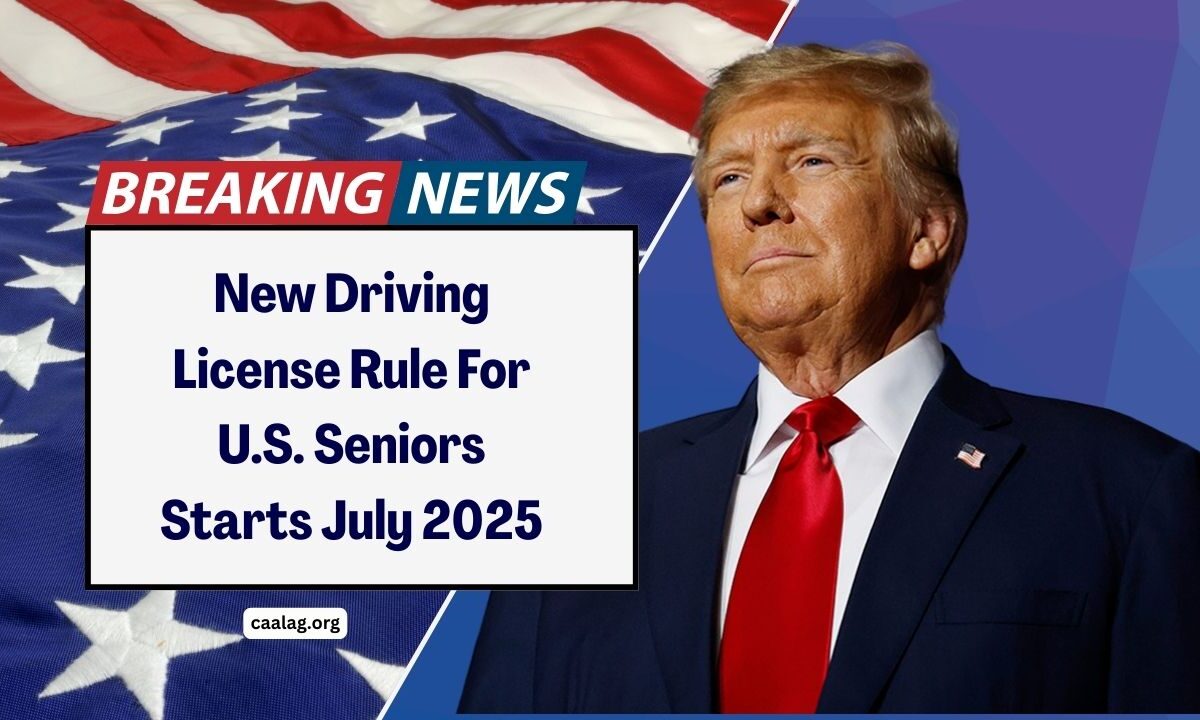Beginning July 2025, the U.S. Department of Transportation is rolling out a nationwide senior driving policy that introduces important updates for drivers aged 70 and above.
As the population of senior drivers continues to grow, this new rule aims to ensure road safety while supporting the independence of older adults.
Let’s break down everything you need to know about the new 2025 driving license rule for seniors, how it works, what you need to prepare, and what changes to expect across different states.
Why the Rule Is Changing
With nearly 48 million Americans aged 65 and older currently licensed to drive, the U.S. faces a critical moment in balancing mobility and safety. While most seniors are still capable drivers, factors such as:
- Slower reaction times
- Diminished vision
- Hearing loss
- Mild cognitive decline
…can all increase accident risks. The new law doesn’t impose a strict age limit, but instead implements a flexible, ability-based renewal system to assess driving fitness.
How the New Rule Works
The tiered renewal structure is at the heart of the July 2025 regulation. Seniors will now follow a structured process depending on their age bracket.
Renewal System by Age Group
| Age Group | Renewal Frequency | Additional Requirements |
|---|---|---|
| 70 – 79 | Every 4–5 years | May require vision test or written exam |
| 80 – 86 | Every 2–3 years | In-person renewal, vision & reaction tests |
| 87 and above | Annually | Full driving assessment may be required |
Some states may also include medical or cognitive assessments, especially when flagged by a physician or family member.
Can Someone Report an Unsafe Senior Driver?
Yes. Under this rule, a formalized process allows:
- Family members
- Healthcare providers
- Concerned citizens
…to report potentially unsafe senior drivers. The DMV can then mandate a medical review or driving test before allowing continued operation of a vehicle.
This system is designed to prevent serious accidents while offering families a non-confrontational solution.
Will Every State Follow the Same Rules?
Not entirely. The federal government is offering guidelines, but each state DMV will retain discretion in implementation. Some may:
- Provide remote evaluations
- Waive in-person renewals in rural areas
- Set additional testing conditions
Residents should contact their local DMV to understand state-specific updates.
What Seniors Should Do to Prepare
Seniors can proactively adapt by:
- Scheduling regular eye and hearing tests
- Taking senior-focused driving courses
- Staying updated on local road laws
- Keeping a list of medications or conditions affecting driving
This preparation ensures smoother renewals and confidence on the road.
What Are Restricted Licenses?
If full driving is deemed risky but not entirely unsafe, seniors may receive a restricted license, which limits when and where they can drive:
- Daylight-only driving
- Within a set radius from home
- No freeway usage
- Must wear corrective lenses
These restrictions balance independence and safety for the driver and others on the road.
Alternatives to Driving
For those unable to renew or pass evaluations, alternative transportation options include:
- Rideshare services like Uber or Lyft
- Senior shuttle programs
- Public transit with discounts
- Volunteer driving networks
Many cities and nonprofits offer free or low-cost rides for medical and daily needs.
The July 2025 senior driving license rule represents a significant yet sensible shift in how the U.S. handles aging drivers.
Rather than imposing blanket restrictions, the rule champions ability-based evaluations, flexibility by state, and supportive measures to keep roads safe.
For seniors and their families, the key takeaway is preparedness and awareness—the road ahead can still be yours, safely.
FAQs
Do all drivers aged 70 and above need to renew in person?
Not necessarily. While in-person renewal is more likely starting at age 80, some states may allow remote options or exceptions.
Can a senior lose their license based on a family report alone?
No. A report may trigger an evaluation process, but the final decision rests with the DMV after proper testing.
Are restricted licenses available in all states?
Most states offer some form of restricted license to seniors with mild impairments. Eligibility and terms vary by location.

